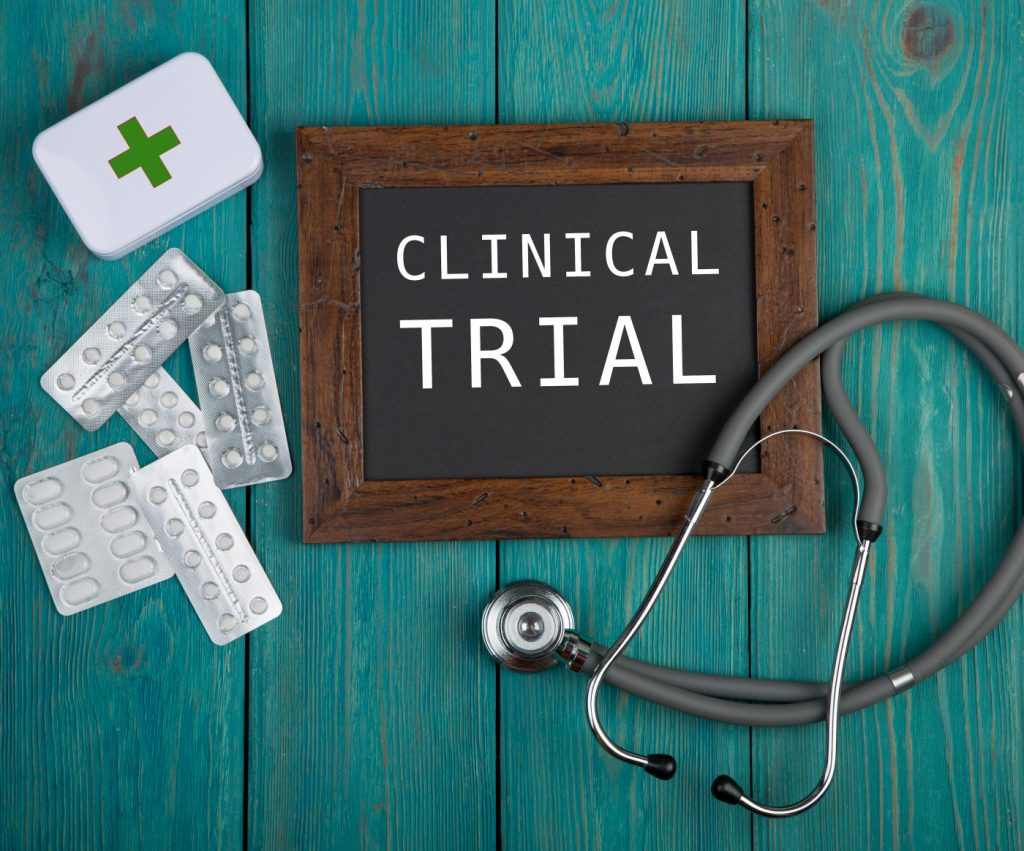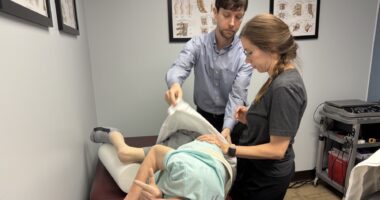#MDA2021 – RAINBOWFISH Could Spot Optimal Evrysdi Dose for Newborns

Editor’s note: The SMA News Today team is providing in-depth coverage of the 2021 MDA Virtual Clinical and Scientific Conference, March 15–18. Go here to read the latest stories from the conference.
The Phase 2 RAINBOWFISH trial of Evrysdi (risdiplam) in newborns up to 6 weeks old with a genetic diagnosis of spinal muscular atrophy (SMA), but no evidence of symptoms, will help in determining an optimal dose for patients under 2 months of age — the currently approved lower age limit for most countries.
The trial’s design was shared in the poster “RAINBOWFISH: A study of risdiplam in newborns with presymptomatic spinal muscular atrophy (SMA),” at the 2021 MDA Virtual Clinical and Scientific Conference, held March 15–18.
Evrysdi was approved in the U.S. in August as the first oral and at-home treatment for patients, 2 months and older, with any SMA type. Identical approvals followed in Brazil, Chile, Ukraine, South Korea, Georgia, and Russia.
Similar approval requests are currently being reviewed by health authorities in Canada, China, Switzerland, and the European Union, where its application was given a positive opinion by an arm of the European Medicines Agency earlier this month.
SMA is characterized by the progressive loss of motor neurons, the specialized nerve cells responsible for voluntary movement, due to mutations in the SMN1 gene that impair the production of SMN, an essential protein for motor neuron and muscle health.
Evrysdi is an oral, flavored liquid therapy designed to boost the production of functional SMN. It was developed by Roche and its subsidiary Genentech, in collaboration with PTC Therapeutics and the SMA Foundation.
Regulatory approvals were based on top-line data from the ongoing Phase 2/3 FIREFISH (NCT02913482) and SUNFISH (NCT02908685) trials, which are evaluating Evrysdi’s safety and effectiveness in a total of 221 patients, 1 month to 25 years old, with SMA types 1, 2, and 3.
Results showed that both trials met their main and most secondary goals, with one year of Evrysdi’s use resulting in significant improvements in survival, swallowing, breathing, and motor milestones in type 1 infants, and in motor function in children and young adults with types 2 and 3 disease.
The Phase 2 RAINBOWFISH study (NCT03779334) is evaluating Evrysdi’s safety, effectiveness, pharmacokinetics (movement into, through, and out of the body) and pharmacodynamics (effects on the body) in up to 25 infants genetically diagnosed with SMA but not yet showing symptoms (presymptomatic).
Babies, up to 6 months old at the time of the first dose, are currently being recruited at several sites in the U.S., Brazil, Australia, Belgium, Italy, Poland, Russia, China, Saudi Arabia, and Taiwan. Eligible patients cannot have received any prior SMA-targeting therapy.
Notably, recruitment will close once 10 infants carrying two copies of the “backup” gene SMN2 — meaning they are likely to develop SMA type 1 — and normal muscle response are enrolled.
Enrolled babies will be treated with Evrysdi for two years, followed by a three-year extension study with its continued use.
The trial’s main goal is the proportion of infants able to sit without support for at least five seconds after one year of treatment, as assessed through the Bayley Scales of Infant and Toddler Development-III Gross Motor Scale. This goal will be evaluated specifically in the 10 infants with two SMN2 copies and normal muscle response.
Secondary goals, assessed in all enrolled infants, include the proportion of patients developing clinical symptoms of SMA, achieving motor milestones, and alive and free from a need for permanent ventilation, as well as changes in motor function — assessed via several validated measures — and in growth, nutritional status, and muscle response.
Pharmacokinetics, pharmacodynamics (essentially, how the body affects a medicine and the interactions between the body and a compound), and safety will also be evaluated.
As of Jan. 21, 12 infants had begun Evrysdi treatment in RAINBOWFISH. Their median age at first dose was 28.5 days (range, 16–40 days), and five of them had two SMN2 copies. The remaining seven carried at least three SMN2 copies, and are expected to develop milder forms of the disease, type 2 or 3.
The diagnosis of most of these babies was a result of newborn genetic screening, while that of four infants was due to history of SMA in the family.
Notably, infants’ SMN blood levels at the study’s start appeared to be higher than those observed in patients in other Evrysdi trials, supporting the importance of early treatment in SMA to minimize the extent of irreversible motor neuron loss.
“RAINBOWFISH will provide valuable information about the effects of risdiplam treatment at the presymptomatic stage in young infants with SMA,” the researchers wrote.
The study will also “help to determine the dose of [Evrysdi] for infants [younger than] 2 months of age,” they added.
.pf-button.pf-button-excerpt { display: none; }
The post #MDA2021 – RAINBOWFISH Could Spot Optimal Evrysdi Dose for Newborns appeared first on SMA News Today.

